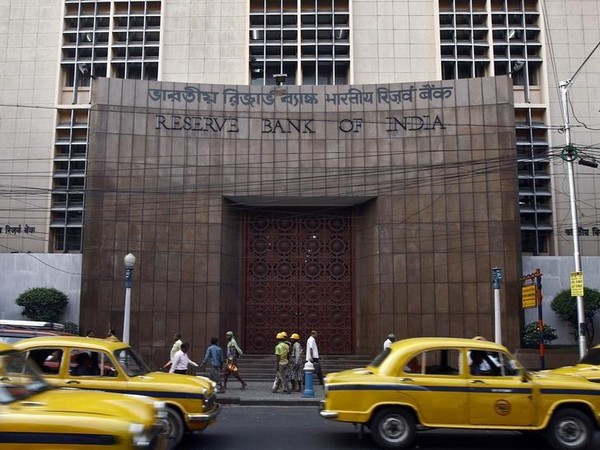
Commuters travel past a Reserve Bank of India (RBI) building in Kolkata November 11, 2014. REUTERS/Rupak De Chowdhuri/Files
Mumbai (Maharashtra) [India], May 16 (ANI): The recent ruling by the Supreme Court that underscores the primacy of the Reserve Bank of India (RBI) as the regulator and supervisor of the non-banking financial companies (NBFCs), has removed a key regulatory overhang, rating agency CRISIL said on Monday.
The Supreme Court has finally put to rest the uncertainty around the applicability of state legislations on non-banking financial companies (NBFCs), by underscoring the primacy of the Reserve Bank of India (RBI) as the regulator and supervisor of NBFCs in India, with oversight on the rate of interest they charge borrowers, the rating agency said in a report.
The legislatures of Kerala and Gujarat had sought to bring NBFCs under the ambit of their respective legislations (the Kerala Money Lenders Act, 1958 and the Gujarat Money-Lenders Act, 2011) to regulate the interest rate charged by moneylenders and protect borrowers.
However, the Supreme Court said the state enactments have no application to NBFCs registered under the RBI Act, and regulated by the RBI. It noted that the RBI Act takes a holistic approach with its Chapter III-B affording the RBI a supervisory role to oversee the functioning of NBFCs from the time of their birth (registration) till the time of their commercial death (winding up).
The Supreme Court said while the RBI may not be controlling the rate of interest charged by NBFCs on loans advanced by them, it does have the power to step in to determine policy and issue directions. It observed that while the RBI generally leaves it to the market forces to determine the rate of interest — without any direct intervention — states cannot take advantage of this to step in and prescribe limits.
“The ruling has two big takeaways for NBFCs. First, it has effectively reaffirmed regulatory sanctity for NBFCs registered with the RBI as a separate category of lenders, distinct from the traditional moneylenders,” said Krishnan Sitaraman, Senior Director and Deputy Chief Ratings Officer, CRISIL Ratings.
“Second, while the Supreme Court has not specifically commented on the appropriateness of interest rates being charged by NBFCs, it has implicitly stated that the RBI has the jurisdiction and powers to look into the same and is already doing so through the various Regulations, Master Circulars and Master Directions issued by it,” he said.
“The ruling is specifically beneficial to gold loan NBFCs and other regulated NBFCs, including NBFC-MFIs, where sensitivity over interest rates is higher,” Sitaraman added. (ANI)


















